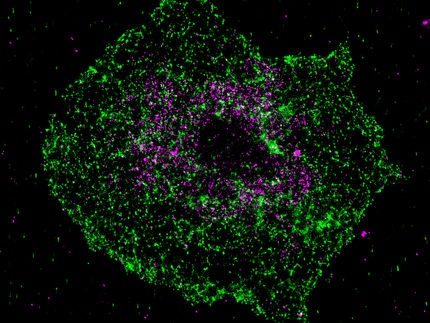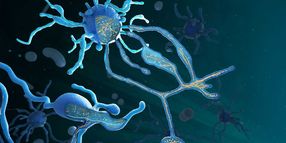Traffic noise, a novel risk factor for cardiovascular diseases
According to the WHO, more than 1.6 million healthy years of life are lost every year in Western Europe due to traffic-related noise
An international group of noise experts from the Copenhagen Cancer Institute (Denmark), the Swiss Tropical and Public Health Institute (Swiss TPH), the Perelman School of Medicine at the University of Philadelphia (USA) and the Department of Cardiology at the Mainz University Medical Center have analyzed recent epidemiological data and found strong evidence that transportation noise is closely linked to cardiovascular and cerebrovascular disease. As a result, the researchers call for traffic noise to be recognized as a risk factor for cardiovascular disease. The results of their analyses were published in the journal of the American Heart Association, Circulation Research.
Epidemiological studies have shown that traffic noise - such as road, rail, or aircraft noise - increases the risk of cardiovascular morbidity and mortality, with high-quality evidence for the development of cardiometabolic diseases such as ischemic heart disease, heart failure, stroke, and diabetes. According to the WHO, more than 1.6 million healthy years of life are lost every year in Western Europe due to traffic-related noise.
Night-time traffic noise, in particular, leads to frequent interruptions and shortening of sleep, an increase in stress hormone levels and increased oxidative stress in the vascular system and brain - and thus to the increased formation of free radicals. These factors can promote vascular disorders, inflammation, and high blood pressure, thereby increasing the risk of cardiovascular disease. In the current review, the international team of authors from Denmark, the USA, Switzerland, and Germany focused on transportation noise's indirect, non-auditory, cardiovascular health effects.
The authors provide an updated overview of the epidemiologic research on the effects of transportation noise on cardiovascular risk factors and disease, discuss the mechanistic findings from the latest clinical and experimental studies, and propose new risk markers to address noise-induced cardiovascular effects in the general population. A recent analysis on traffic noise and cardiovascular disease integrated into the review article impressively demonstrates that for every 10 dBA, the risk of developing cardiovascular diseases such as heart attack, stroke, and heart failure increases significantly by 3.2 percent.
The authors also explain in detail the possible effects of noise on changes in gene networks, epigenetic pathways, circadian rhythm, signaling along the neuronal-cardiovascular axis, oxidative stress, inflammation, and metabolism. Finally, current, and future noise protection strategies are described and the available evidence on noise as a cardiovascular risk factor is discussed.
"With an increasing proportion of the population exposed to harmful traffic noise even after the COVID pandemic has ended, noise control efforts and noise reduction laws are of great importance for future public health," summarizes the lead author of the paper, Prof. Dr. Thomas Münzel, Senior Professor at the University Medical Center Mainz. "It is also important for us that traffic noise is now finally recognized as a risk factor for cardiovascular disease due to the strong evidence."
Original publication
Other news from the department science

Get the life science industry in your inbox
By submitting this form you agree that LUMITOS AG will send you the newsletter(s) selected above by email. Your data will not be passed on to third parties. Your data will be stored and processed in accordance with our data protection regulations. LUMITOS may contact you by email for the purpose of advertising or market and opinion surveys. You can revoke your consent at any time without giving reasons to LUMITOS AG, Ernst-Augustin-Str. 2, 12489 Berlin, Germany or by e-mail at revoke@lumitos.com with effect for the future. In addition, each email contains a link to unsubscribe from the corresponding newsletter.
More news from our other portals
Last viewed contents

Can we repair the brain? - The promise of stem cell technologies for treating Parkinson's disease

CureVac and GSK Start Clinical Development of Second-Generation COVID-19 Vaccine Candidate

Hidden RNA repair mechanism discovered in humans - Function of a previously uncharacterized human protein elucidated

Canine Diag’noses’ - Dogs can detect SARS-CoV-2 infected humans on all tested body fluids with high accuracy























































